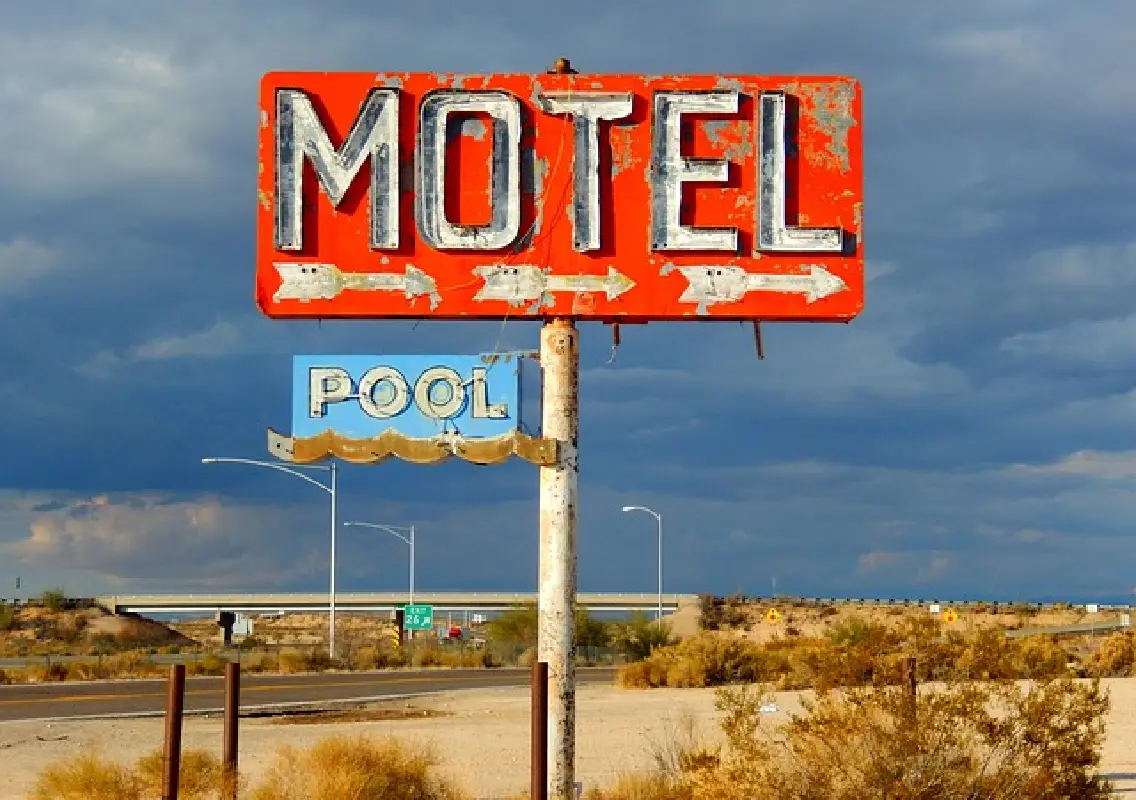By News Karnataka Editorial Team
Copyright newskarnataka

The motel business in the United States, often regarded as the backbone of affordable travel accommodation, has an unmistakably Indian face—predominantly Gujarati. But behind the success stories of hardworking immigrants lies a dangerous reality. For many, the dhandho (business) that transformed their fortunes has also exposed them to violence in a country where guns are as common as gulaabs.
Gujaratis dominate the US motel landscape
Over 60% of motels in the US are owned by Indian-Americans, and nearly 80% of those trace their roots to Gujarat—mainly from Navsari, Surat, and Anand. On highways and in small American towns, motels such as Budget Inn, Sunset Lodge, and Royal Motor Inn are often run by Patel families.
The story began in the 1970s, when early Gujarati immigrants—mostly from southern Gujarat—moved to the US in search of a better life. With limited education but a sharp business instinct, they saw potential in buying rundown inns, managing them as families, and turning them into profitable ventures.
“Motel business offered residence, income, and independence,” explains Paresh Mistry, a motel owner based in Los Angeles. “Our forefathers were visionaries who saw opportunity where others saw risk,” he says.
Hard work, family, and frugality built an empire
What started as a small-scale investment has become a multibillion-dollar empire over five decades. Patel families lived on their motel properties, cleaned rooms, managed front desks, and reinvested every dollar they earned.
“In hotels, you can stay with your family 24 hours, which fits our culture,” says Devendra Patel, a Texas-based motel owner. “We work more hours and value the opportunity.”
This family-driven model—rooted in hard work and thrift—helped Gujaratis thrive. Yet, their closeness to the business has also made them vulnerable. Many still live behind the reception or upstairs, leaving them exposed to dangers like robbery, gun violence, and racial attacks.
Violence and vulnerability shadow the motel trade
Recent months have been grim. In October, three Gujaratis linked to the motel business were killed in two separate incidents in North Carolina and Pennsylvania. On October 3, Rakesh Patel, 51, was shot dead in Pennsylvania while checking on a disturbance at his motel. A double murder of two Gujaratis followed in North Carolina.
Just weeks earlier, a Karnataka-origin man was beheaded inside a Dallas motel laundry room—owned by a Gujarati. With four incidents in a month, shockwaves have spread through the community.
Still, Devendra Patel believes not all these crimes are racially motivated. “In America, crime happens every day. It’s not always about race,” he says. “When you hear gunfire, move away and call the police. Rakesh stood still and was shot.”
Community observers like Mistry agree. “Criminals don’t see race—they see opportunity. America’s gun culture is the real danger,” he adds.
America’s gun culture and the motel risk
The US has one of the highest civilian gun ownership rates globally. Even minors can buy guns in some states. Combined with the ongoing drug crisis, this makes motel owners frequent victims of violent crime.
According to a USA Today report from 2021, motels generate a disproportionate number of 911 calls due to their transient clientele. Many guests stay briefly, some involved in drugs or sex work.
“In motels, you see all kinds of guests,” says Patel. “If someone looks dangerous, don’t argue or charge extra—stay calm.”
To stay safe, many Gujarati owners have installed bulletproof glass at reception and keep limited cash to avoid violent robberies.
Life and labour behind the front desk
For most families, living onsite provides both convenience and comfort. Couples manage the property, and their children grow up helping with chores or attending guests. This closeness fosters a sense of belonging but also means danger can come literally to their doorstep.
“Be polite and cool with guests,” advises Mistry. “If someone comes to rob you, give them whatever they want. A few hundred dollars won’t change your life—but it could save it.”
Racism remains a complex reality
While associations like the Asian American Hotel Owners Association (AAHOA) have voiced concern over racial targeting, many Gujaratis downplay racism as a major factor. “Racism is everywhere,” says Mistry. “It exists in India too.”
A Mumbai-based sociologist studying South Asian immigrants, however, notes that this mindset stems from survival instinct. “First-generation Gujaratis often interpret misfortune as destiny, not discrimination. It helps them keep going without fear,” he explains.
Even so, the rise in anti-immigrant rhetoric in recent years, especially under Donald Trump’s presidency, has made life harder for minorities. Indian-Americans continue to campaign against normalising hate crimes.
The next generation is changing the game
Despite the challenges, few Gujaratis are leaving the motel business. The profits remain high, especially for those who own their properties outright. “No one quits the motel business,” says Mistry. “It’s more profitable than most ventures except real estate.”
However, generational change is reshaping the industry. Many first-generation motel owners, now in their 60s or 70s, are handing control to their children—many of whom are American-educated and prefer lighter workloads.
“The kids don’t want to work 16-hour days,” says Patel. “They lease motels or collect rent from management firms. It’s still good money.”
Younger Gujaratis are diversifying their investments into gas stations, real estate, and tech startups. The dhandho continues—just in different forms.
A legacy of persistence
Even after decades in America, the Patel business model remains rooted in family, hard work, and endurance. The Gujarati motel empire stands as a symbol of ambition and adaptability—born from risk and sustained by resilience.
Devendra Patel sums it up: “We came with nothing. We worked hard, helped each other, and made a life. This business is risky and relentless—but it’s rewarding.”
For Gujaratis in America, the dhandho is more than profit—it’s persistence. And even under the shadow of the gun, their legacy shows no sign of checking out.